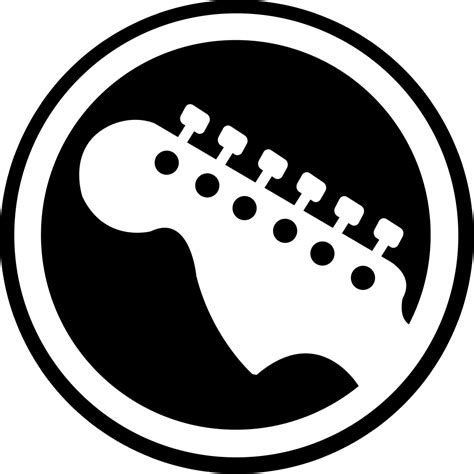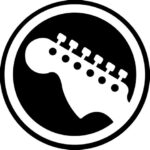
Rock and roll has lost one of its most influential figures. Jeff Beck, the guitar virtuoso renowned for his innovative techniques and groundbreaking contributions to rock, blues, and jazz fusion, died Tuesday at the age of 81 after unexpectedly contracting bacterial meningitis.
Jeff Beck, a two-time Rock and Roll Hall of Fame inductee, first as a member of The Yardbirds and later as a solo artist, leaves behind a legacy of sonic exploration and unparalleled guitar mastery that influenced generations of musicians. His family confirmed his death in a statement released Wednesday, prompting an outpouring of tributes from fellow musicians, fans, and admirers worldwide. From his pioneering work with The Yardbirds in the 1960s to his solo career that spanned decades, Beck consistently pushed the boundaries of guitar playing, earning him critical acclaim and a devoted following.
Beck’s career began in the vibrant London music scene of the 1960s when he replaced Eric Clapton as the guitarist for The Yardbirds in 1965. It was during his brief but impactful tenure with the band that he began to develop his signature style, characterized by innovative use of feedback, distortion, and tremolo arm techniques. He contributed to some of The Yardbirds’ most iconic songs, including “Heart Full of Soul” and “Shapes of Things,” before leaving the band in 1966 to pursue his own musical vision.
Following his departure from The Yardbirds, Beck formed The Jeff Beck Group, which featured a young Rod Stewart on vocals and Ronnie Wood on bass. This lineup produced two seminal albums, “Truth” (1968) and “Beck-Ola” (1969), which blended blues, rock, and hard rock elements into a groundbreaking sound that influenced the development of heavy metal. The Jeff Beck Group’s innovative approach to music established Beck as a leading figure in the burgeoning rock scene.
Throughout the 1970s, Beck explored jazz fusion with albums such as “Blow by Blow” (1975) and “Wired” (1976), both produced by George Martin. These albums showcased Beck’s virtuosity and his ability to seamlessly blend rock and jazz elements. “Blow by Blow,” in particular, became a commercial success, reaching number four on the Billboard 200 chart and solidifying Beck’s reputation as a guitar innovator.
Beck continued to release albums and tour throughout his career, collaborating with a diverse range of artists, including Eric Clapton, Stevie Wonder, and Brian Wilson. He received eight Grammy Awards and numerous other accolades for his contributions to music. In 2009, he was inducted into the Rock and Roll Hall of Fame for the second time, this time as a solo artist, cementing his status as one of the greatest guitarists of all time.
“Jeff Beck is in a realm all of his own,” Jimmy Page once said of him. “It’s just phenomenal.” Beck’s unique playing style, characterized by his use of vibrato, whammy bar, and finger-picking techniques, set him apart from his contemporaries. He was known for his ability to coax a wide range of sounds and emotions from his guitar, often without the use of a pick.
Joe Satriani, another guitar virtuoso, described Beck as “the Picasso of our generation.” Satriani added, “Jeff would pick up the guitar, and suddenly it wasn’t a guitar anymore. It was part of his voice.” This sentiment reflects the deep connection Beck had with his instrument and his ability to communicate complex emotions through his playing.
Beck’s influence extended beyond the realm of rock music. He inspired countless guitarists in various genres, including blues, jazz, and metal. His innovative techniques and his willingness to experiment with different sounds paved the way for new generations of musicians to explore the sonic possibilities of the guitar.
Tributes poured in from across the music world following the news of Beck’s death. Jimmy Page wrote, “The six stringed Warrior is no longer here for us to admire the spell he weaved around our mortal emotions. Jeff could channel music from the ethereal. His technique unique. His imaginations apparently limitless.”
Rod Stewart, who collaborated with Beck in The Jeff Beck Group, said, “Jeff Beck was on another planet. He took me and Ronnie Wood to the USA in the late 60s in his Jeff Beck Group and we haven’t looked back since. He was one of the few guitarists that when playing live would actually listen to me sing and respond. Jeff, you were the greatest, my man. Thank you for everything.”
Gene Simmons of KISS tweeted, “Sad to hear Jeff Beck has passed. Nobody played guitar like Jeff. Please get ahold of ‘Truth’ an amazing album. Jeff was otherworldly.”
Ronnie Wood of the Rolling Stones said: “I would like to thank Jeff for all he has given me. He’s one of the greats. He was, and is, an inspiration to me. Jeff, I will always love you. All my thoughts are with his family.”
Beck’s death marks the end of an era in rock music. His innovative playing style, his willingness to experiment, and his unwavering dedication to his craft made him one of the most influential guitarists of all time. His music will continue to inspire and influence musicians for generations to come.
Throughout his career, Beck maintained a relentless pursuit of sonic innovation. He never settled for replicating past successes, consistently pushing himself and his instrument to explore new territories. This unwavering commitment to experimentation led him to embrace new technologies and techniques, constantly evolving his sound and challenging conventional notions of guitar playing. Whether he was experimenting with fuzz tones, feedback, or unconventional playing techniques, Beck always sought to push the boundaries of what was possible with the electric guitar.
One of Beck’s most distinctive characteristics was his ability to play without a pick. He primarily used his fingers and thumb to pluck the strings, which allowed him to achieve a wide range of tones and textures. This technique, combined with his mastery of the whammy bar and his innovative use of effects pedals, gave him a unique sonic signature that was instantly recognizable.
Beck’s influence can be heard in the playing of countless guitarists across various genres. From hard rock and heavy metal to blues and jazz, musicians have drawn inspiration from his innovative techniques and his unwavering commitment to musical exploration. His impact on the development of rock guitar is undeniable, and his legacy will continue to inspire generations of musicians to come.
Beck is survived by his wife, Sandra Cash. The couple married in 2005 and shared a passion for animals, particularly rescue animals. Beck was known for his love of cars and hot rods, and he often incorporated his passion for automobiles into his music and artwork.
Jeff Beck’s death is a profound loss for the music world. His innovative spirit, his unparalleled guitar skills, and his unwavering dedication to his craft made him one of the most influential and respected musicians of all time. His music will continue to inspire and captivate audiences for generations to come, ensuring that his legacy as a guitar legend endures.
The outpouring of grief and tributes from fellow musicians, fans, and critics underscores the profound impact Jeff Beck had on the world of music. His innovative spirit, his unparalleled technical skill, and his unwavering dedication to his craft made him a true original, a musician who consistently pushed the boundaries of what was possible with the electric guitar. His music will continue to inspire and influence generations of musicians to come, ensuring that his legacy as a guitar legend lives on. Jeff Beck’s final chord may have been struck, but his music will resonate forever.
FAQ: Jeff Beck’s Life and Legacy
- What was Jeff Beck known for?
Jeff Beck was a highly influential guitarist known for his innovative techniques, his mastery of the electric guitar, and his contributions to rock, blues, and jazz fusion. He was renowned for his use of vibrato, whammy bar, and finger-picking techniques, as well as his ability to coax a wide range of sounds and emotions from his instrument. He was inducted into the Rock and Roll Hall of Fame twice, first as a member of The Yardbirds and later as a solo artist. According to Jimmy Page, “Jeff Beck is in a realm all of his own.”
- How did Jeff Beck die?
Jeff Beck died on Tuesday at the age of 81 after unexpectedly contracting bacterial meningitis. His family confirmed his death in a statement released Wednesday.
- What were some of Jeff Beck’s most notable musical achievements?
Some of Jeff Beck’s most notable musical achievements include his work with The Yardbirds in the 1960s, his formation of The Jeff Beck Group with Rod Stewart and Ronnie Wood, and his successful solo career that spanned decades. He released numerous critically acclaimed albums, including “Truth,” “Beck-Ola,” “Blow by Blow,” and “Wired.” He also won eight Grammy Awards and collaborated with a diverse range of artists, including Eric Clapton, Stevie Wonder, and Brian Wilson. His work with The Yardbirds produced iconic songs such as “Heart Full of Soul” and “Shapes of Things,” while his solo albums like “Blow by Blow” reached significant commercial success, peaking at number four on the Billboard 200 chart.
- Who were some of the artists Jeff Beck collaborated with?
Throughout his career, Jeff Beck collaborated with a wide range of artists, including Rod Stewart, Ronnie Wood, Eric Clapton, Stevie Wonder, Brian Wilson, and many others. These collaborations showcased Beck’s versatility and his ability to adapt to different musical styles. His collaborations with Rod Stewart and Ronnie Wood in The Jeff Beck Group were particularly significant in shaping the sound of rock music in the late 1960s. Rod Stewart reflected on their time together, stating, “Jeff Beck was on another planet. He took me and Ronnie Wood to the USA in the late 60s in his Jeff Beck Group and we haven’t looked back since.”
- What was Jeff Beck’s impact on the world of music?
Jeff Beck had a profound impact on the world of music, particularly on the development of rock guitar. His innovative techniques, his willingness to experiment, and his unwavering dedication to his craft inspired countless guitarists across various genres. His influence can be heard in the playing of musicians in hard rock, heavy metal, blues, and jazz. Joe Satriani described Beck as “the Picasso of our generation,” highlighting his unique and transformative approach to playing the guitar. His legacy as a guitar legend will continue to inspire and influence musicians for generations to come.
- What instruments did Jeff Beck play?
Jeff Beck was primarily known for playing the electric guitar. While he experimented with various guitar models throughout his career, he was most closely associated with Fender Stratocasters. He was also known for his innovative use of effects pedals and amplifiers to create his signature sound.
- What was unique about Jeff Beck’s guitar playing style?
Jeff Beck’s guitar playing style was unique in several ways. He primarily played without a pick, using his fingers and thumb to pluck the strings. This allowed him to achieve a wide range of tones and textures. He was also a master of the whammy bar, using it to create expressive vibrato and other effects. Furthermore, he was known for his innovative use of feedback and distortion, pushing the boundaries of what was possible with the electric guitar.
- What are some of the albums that showcase Jeff Beck’s guitar skills?
Several albums showcase Jeff Beck’s exceptional guitar skills, including:
- Truth (1968): This album, by The Jeff Beck Group, features a blend of blues, rock, and hard rock elements and highlights Beck’s innovative guitar playing.
- Beck-Ola (1969): Another album by The Jeff Beck Group, this one further explores the band’s unique sound.
- Blow by Blow (1975): This instrumental album showcases Beck’s jazz fusion style and his virtuosic guitar playing.
- Wired (1976): Another jazz fusion album that demonstrates Beck’s ability to seamlessly blend rock and jazz elements.
- Who Else! (1999): This album marked a return to a more rock-oriented sound for Beck and featured innovative electronic elements.
- You Had It Coming (2001): This album continued Beck’s exploration of electronic music and featured collaborations with Imogen Heap.
- What did Jeff Beck do after The Yardbirds?
After leaving The Yardbirds in 1966, Jeff Beck formed The Jeff Beck Group, which initially featured Rod Stewart on vocals and Ronnie Wood on bass. The band released two influential albums, “Truth” and “Beck-Ola,” before Beck pursued a solo career that explored various musical styles, including jazz fusion and instrumental rock.
- What awards did Jeff Beck receive during his career?
Jeff Beck received numerous awards throughout his career, including eight Grammy Awards. He was also inducted into the Rock and Roll Hall of Fame twice: first in 1992 as a member of The Yardbirds and again in 2009 as a solo artist. These accolades recognized his significant contributions to music and his status as one of the greatest guitarists of all time.
- What kind of impact did Jeff Beck have on other guitarists?
Jeff Beck’s impact on other guitarists was immense. His innovative techniques, unique style, and willingness to experiment inspired countless musicians across various genres. His use of the whammy bar, finger-picking techniques, and unconventional sounds pushed the boundaries of what was possible with the electric guitar. Many guitarists cite Beck as a major influence, crediting him with shaping their own playing styles and inspiring them to explore new sonic territories.
- What was Jeff Beck’s relationship with Eric Clapton?
Jeff Beck and Eric Clapton were both guitarists for The Yardbirds, although their tenures did not overlap directly. Clapton left the band in 1965, and Beck replaced him. While there was no documented animosity between them, they were often compared and contrasted as guitarists. Both went on to have highly successful solo careers and were considered among the greatest guitarists of their generation.
- What was Jeff Beck’s relationship with Jimmy Page?
Jeff Beck and Jimmy Page were both members of The Yardbirds at different times, and for a brief period, they were both in the band together. Page joined The Yardbirds to replace Paul Samwell-Smith on bass, but he eventually switched to guitar alongside Beck. This dual-guitar lineup was short-lived, as Beck soon left the band to pursue his solo career. Despite the brevity of their time together in The Yardbirds, Beck and Page remained friends and respected each other as musicians.
- Was Jeff Beck married?
Yes, Jeff Beck was married to Sandra Cash. They married in 2005 and shared a passion for animals, particularly rescue animals.
- Did Jeff Beck have any children?
There is no publicly available information to suggest that Jeff Beck had any children.
- What were some of Jeff Beck’s favorite guitars?
Jeff Beck was known for playing Fender Stratocasters for much of his career. He favored these guitars for their versatility and their ability to produce a wide range of sounds. He often customized his Stratocasters to suit his specific playing style and sonic preferences. He also experimented with other guitar models throughout his career, but the Stratocaster remained his primary instrument.
- What was Jeff Beck’s contribution to jazz fusion?
Jeff Beck’s contribution to jazz fusion was significant. He explored the genre in the 1970s with albums such as “Blow by Blow” and “Wired,” both of which were produced by George Martin. These albums showcased Beck’s virtuosic guitar playing and his ability to seamlessly blend rock and jazz elements. “Blow by Blow” became a commercial success and helped to popularize jazz fusion among a wider audience.
- How did Jeff Beck use the whammy bar?
Jeff Beck was a master of the whammy bar, also known as a tremolo arm. He used it to create expressive vibrato, subtle pitch bends, and dramatic dives. His innovative use of the whammy bar was a key element of his signature sound and helped to set him apart from other guitarists. He had precise control over the whammy bar, allowing him to create a wide range of nuanced and expressive sounds.
- What was Jeff Beck’s approach to songwriting?
Jeff Beck was primarily known as a guitarist and instrumentalist, rather than a songwriter in the traditional sense. While he did co-write some songs, many of his most famous recordings were instrumental pieces or covers of existing songs. His focus was on creating innovative and expressive guitar parts that showcased his technical skills and his unique sonic vision.
- How will Jeff Beck be remembered?
Jeff Beck will be remembered as one of the greatest and most influential guitarists of all time. His innovative techniques, his unique style, and his unwavering dedication to his craft inspired countless musicians and captivated audiences around the world. He will be remembered for his virtuosity, his experimentation, and his ability to push the boundaries of what was possible with the electric guitar. His music will continue to inspire and influence generations of musicians to come, ensuring that his legacy as a guitar legend endures. As Jimmy Page noted, “The six stringed Warrior is no longer here for us to admire the spell he weaved around our mortal emotions. Jeff could channel music from the ethereal.”









